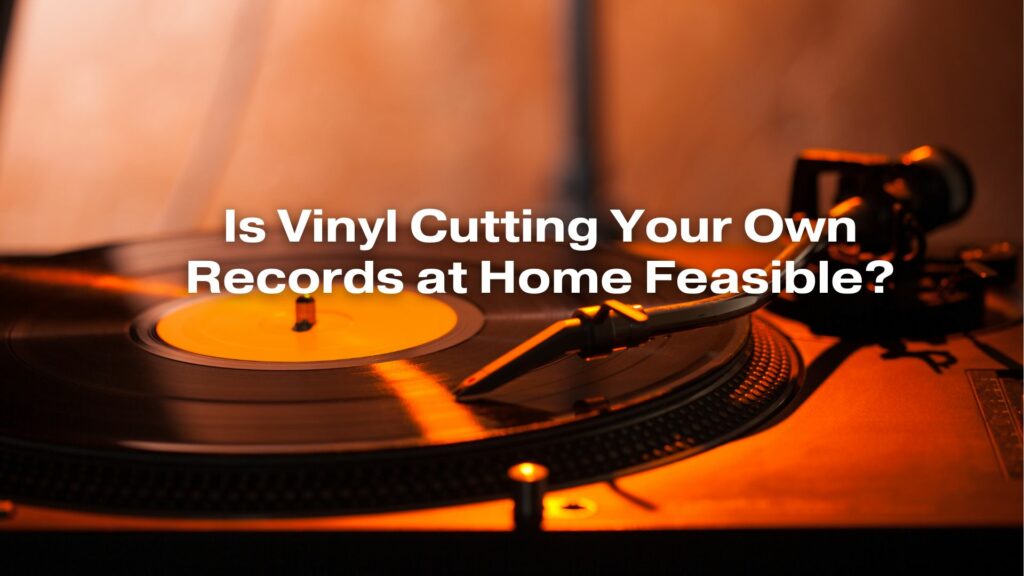Vinyl cutting at home is a fascinating but highly specialized and complex process. While it’s technically feasible, there are significant challenges and requirements that make it a less practical option for most people. Here are some key considerations:
1. Equipment and Expertise:
- To cut vinyl records at home, you would need specialized equipment, including a vinyl cutting lathe or cutter. These machines are expensive and require technical expertise to operate. Adjusting and calibrating the equipment properly is a challenging task.
2. Acoustic Environment:
- The environment in which you cut vinyl records is critical. You need a controlled acoustic space with low vibrations to ensure the highest possible audio quality. Achieving the ideal conditions in a home setting can be difficult.
3. Mastering and Preparing Audio:
- Preparing the audio for vinyl cutting requires mastering skills, which involve adjusting the sound to suit the limitations and characteristics of vinyl. This is a specialized skill that not everyone possesses.
4. Lathe Wear and Maintenance:
- Cutting vinyl records involves the physical contact of a cutting stylus with a lacquer-coated disc. The stylus wears down over time and needs frequent replacement. Maintaining the cutting lathe and ensuring it’s in optimal condition is essential.
5. Material Costs:
- The materials for cutting vinyl records, including the blank lacquer discs and cutting styluses, can be costly. These expenses can add up, especially if you encounter issues that require multiple attempts.
6. Limited Quantity and Quality:
- Home-cut records may have limitations in terms of audio quality and durability. Achieving the same level of quality as professional pressings can be challenging.
7. Licensing and Copyright:
- If you plan to cut records of copyrighted music for sale or distribution, you’ll need to obtain the necessary licenses and permissions, which can be a complex legal process.
8. Time and Patience:
- Cutting vinyl records is a time-consuming and precise process. You’ll need patience and dedication to learn and master the skills required.
9. Limited Market:
- Home-cut records are a niche market. Selling them can be challenging, as many collectors prefer professionally pressed records for their quality and collectibility.
In summary, while it is technically possible to cut vinyl records at home, it’s not a practical or cost-effective option for most people. The complexities and costs involved, coupled with the need for specialized equipment and expertise, make it a challenging endeavor. Professional record pressing plants are better equipped to produce high-quality vinyl records in larger quantities. If you have a passion for vinyl and music, collecting records and exploring the intricacies of the format may be a more practical and enjoyable pursuit.


